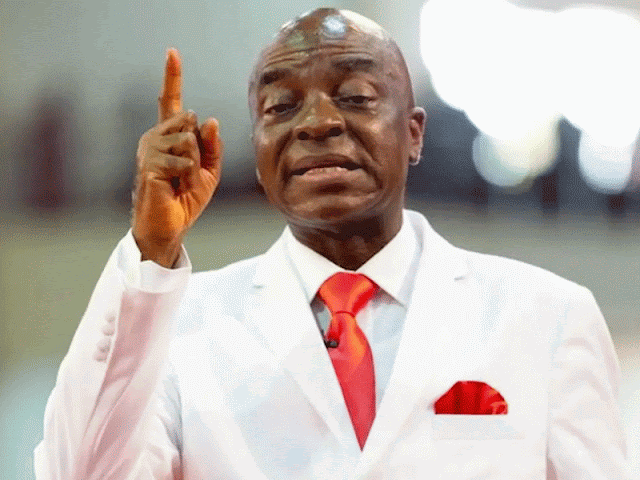During a sermon that has since ignited nationwide debate, Bishop David Oyedepo, founder of Living Faith Church Worldwide (Winners Chapel), took a bold stance against rising tensions linked to Fulani herdsmen violence, asserting that Nigeria does not belong to any one ethnic group.
Addressing a large congregation, Oyedepo expressed deep concerns over the increasing attacks on rural communities in Benue, Enugu, Plateau, and other parts of the country, pointing fingers at what he described as a disturbing narrative of ethnic entitlement. His words, while fiery, were clearly intended to resonate beyond the walls of the church and pierce through the rising fog of tribal dominance threatening Nigeria’s fragile unity.
"This is not the Fulani Republic of Nigeria," Oyedepo declared. "It is the Federal Republic of Nigeria. Fulanis do not own this country. I am a Nigerian by birth, not by visa. I don’t owe allegiance to any tribe to claim this land as mine."
His sermon arrives amidst an ongoing wave of violence allegedly perpetrated by armed Fulani herders, which has led to the displacement and deaths of hundreds across central and southeastern Nigeria. Though not the first to call attention to these atrocities, Oyedepo’s position as a powerful religious voice gives the matter renewed urgency.
The Bishop’s comments, however, have sparked intense discussion both online and offline. Critics and supporters alike have flooded social media with divergent views, offering a glimpse into the deeply polarized state of public opinion in Nigeria.
Twitter user @ugo_shib quipped, “Hahahah read the body language, this one nah ok let me just talk let it be like say I talk 😀,” hinting at a perceived hesitancy in the Bishop’s boldness or sincerity. Yet others found fault not with the message but the messenger.
@rer4life commented, “Fulani herdsmen don’t represent the entire Fulani tribe Sha… But this pastor is one of the least religious tolerant out there. No wonder Obi ran to him for religious war.” This remark alludes to past political controversies surrounding Bishop Oyedepo and his public support for certain political candidates, particularly during the 2023 general elections.
Some voices, however, lamented what they see as inaction on the part of religious leaders. @ORSNigga noted with frustration: “Na pulpit baba talk reach o! No relief funds will be sent, no aids will be sent to Benue! They’ll just talk about it and that’s the end! The amount of influence Oyedepo has is colossal but yet…” He concluded with a nod to the late Prophet TB Joshua, suggesting that the Synagogue Church leader would have taken more tangible action, saying, “I miss TB Joshua, he for don reach Benue with Trailers of food and relief items.”
Another user, @anakwezeugochu1, added a politically charged layer to the discussion. “Until we stop lying to ourselves about the owners of Nigeria, then we would have been ready to solve the problem. It is only a landlord that can give quit notice… go and check how many quit notices they have given in Benue and Plateau.” The message evokes the historical context of settler-indigene conflicts that have plagued Nigeria’s Middle Belt for decades.
While Oyedepo’s rhetoric may resonate with many who are weary of violence and perceived impunity, his words have also exposed the difficulty religious figures face in navigating the line between advocacy and provocation. His critics argue that he risks inflaming tensions, particularly in a country already divided along ethnic and religious lines. Supporters, on the other hand, laud his courage in confronting what they perceive as a coordinated silence from political elites.
Beyond the uproar, the Bishop’s sermon serves as a stark reminder of the power of the pulpit in Nigeria’s socio-political landscape. Religious leaders like Oyedepo command not just congregations, but national followings. What they say—or fail to say—often shapes public discourse and can either defuse or ignite tensions.
Nigeria continues to battle with complex issues of security, identity, and governance. The herdsmen-farmer conflict remains unresolved, and citizens are increasingly looking to civil society and religious institutions for intervention, especially as the state appears overwhelmed.
Oyedepo’s statement, regardless of one’s interpretation, has once again thrown into sharp relief the pressing question of who truly “owns” Nigeria—a nation of over 250 ethnic groups, bound together by colonial design, fractured by decades of unresolved grievances.
As the nation awaits concrete action—beyond rhetoric—from both spiritual and political leaders, the hope remains that words will translate into peace-building and relief, particularly for those caught in the crosshairs of unrelenting violence.













![Content Creator Angelica Kelechi Speaks Out on Alleged Sexual Assault at Khloe Abiri’s Spa [VIDEO]](https://blogger.googleusercontent.com/img/b/R29vZ2xl/AVvXsEgQStip4cn2DAOvQ2hNFU30OAFWoxfQIDOnStd0uVgwwxKrFAQYYvtFni6QV04OGP8dyKk5TCAhXM5es9linl1ClhjPzaazz2tTt0LmJ5lFVe5202o2McF9QROT1v2hEyNTdY-M1KRuLTY6OqqysKNfcsY5bCtwCIP8wEQ4AXcfQfTaXWWZiixqf82NDH5a/w72-h72-p-k-no-nu/abiri-khloe123.jpg)






0 Comments
Hey there! We love hearing from you. Feel free to share your thoughts, ask questions, or add to the conversation. Just keep it respectful, relevant, and free from spam. Let’s keep this space welcoming for everyone. Thanks for being part of the discussion! 😊